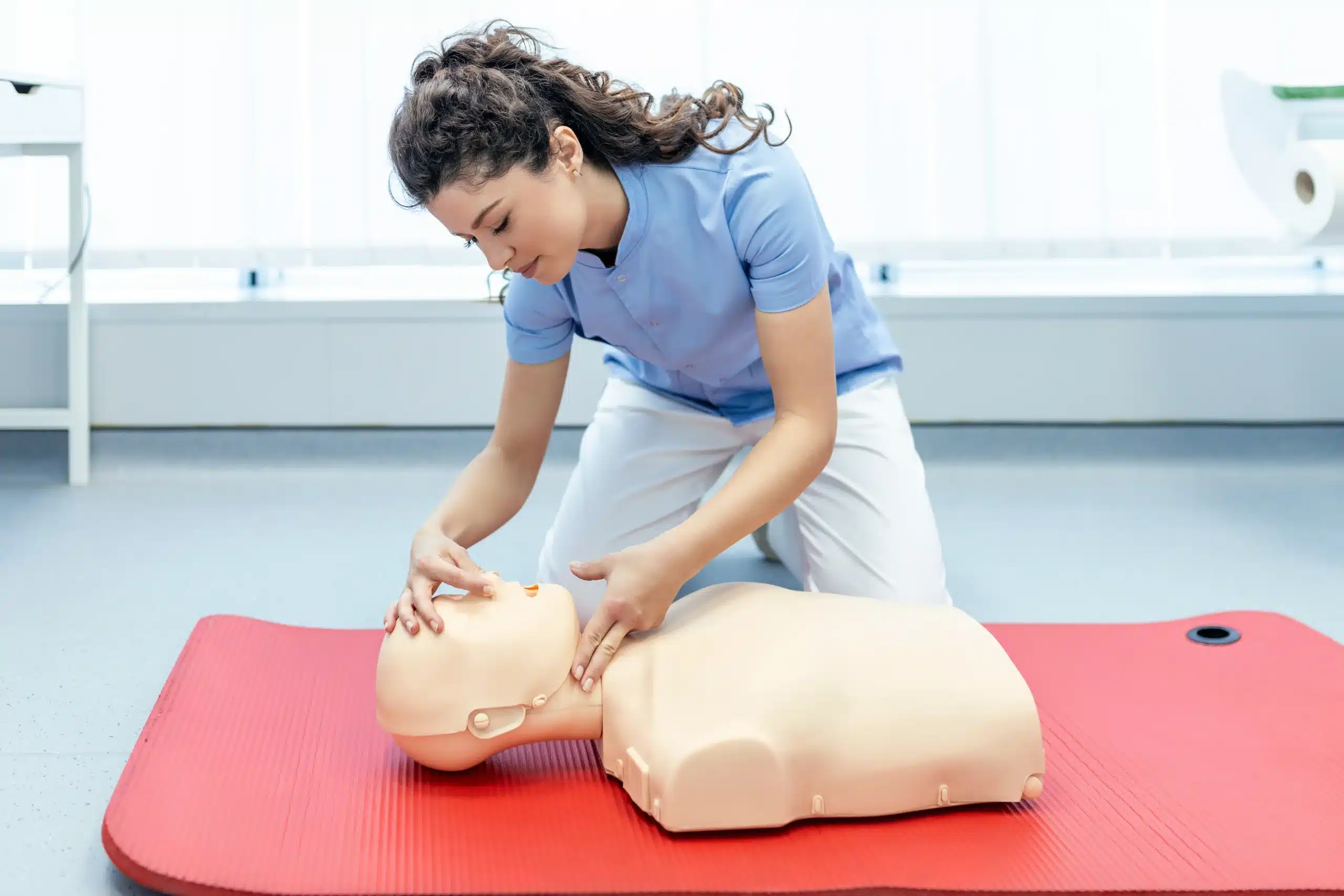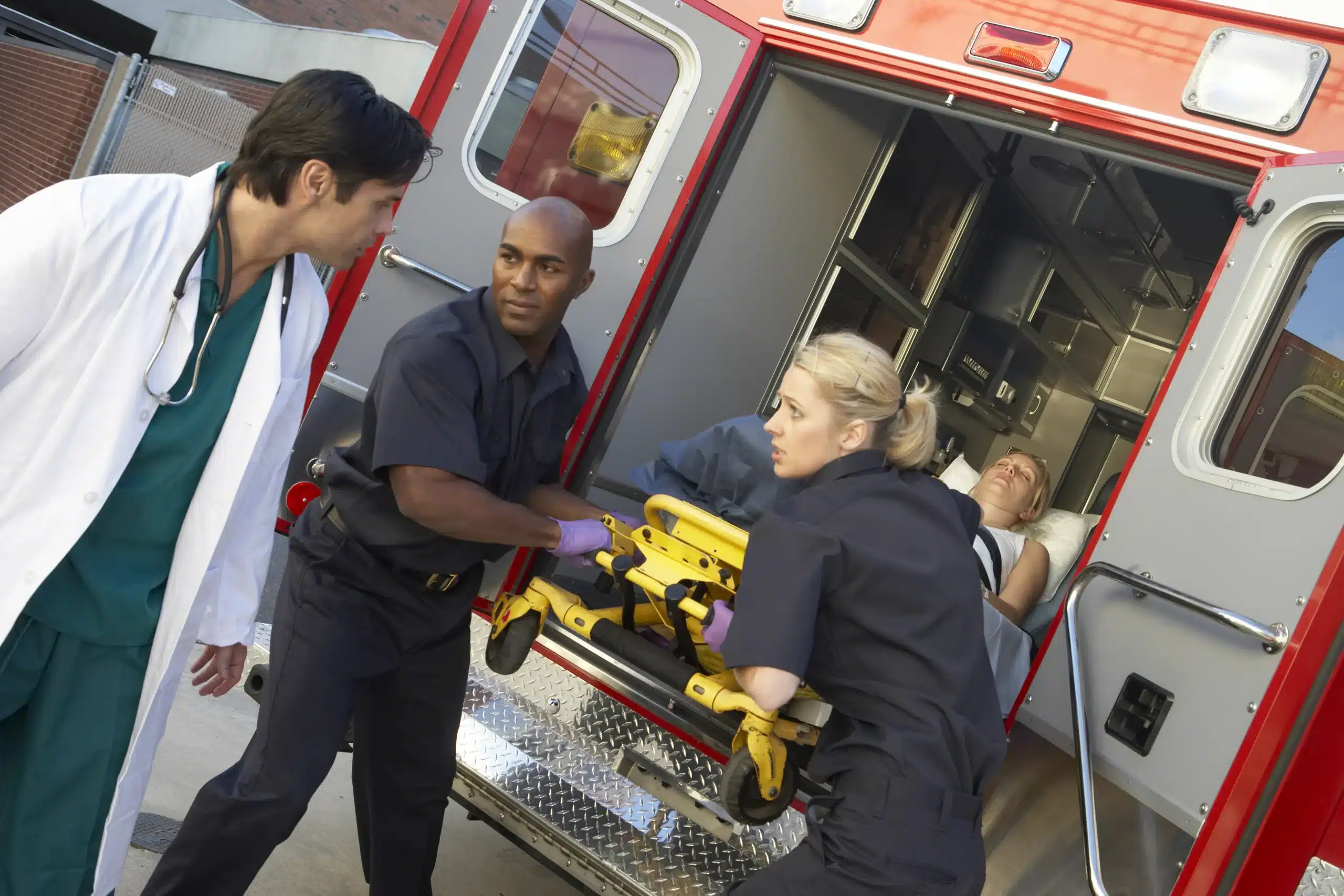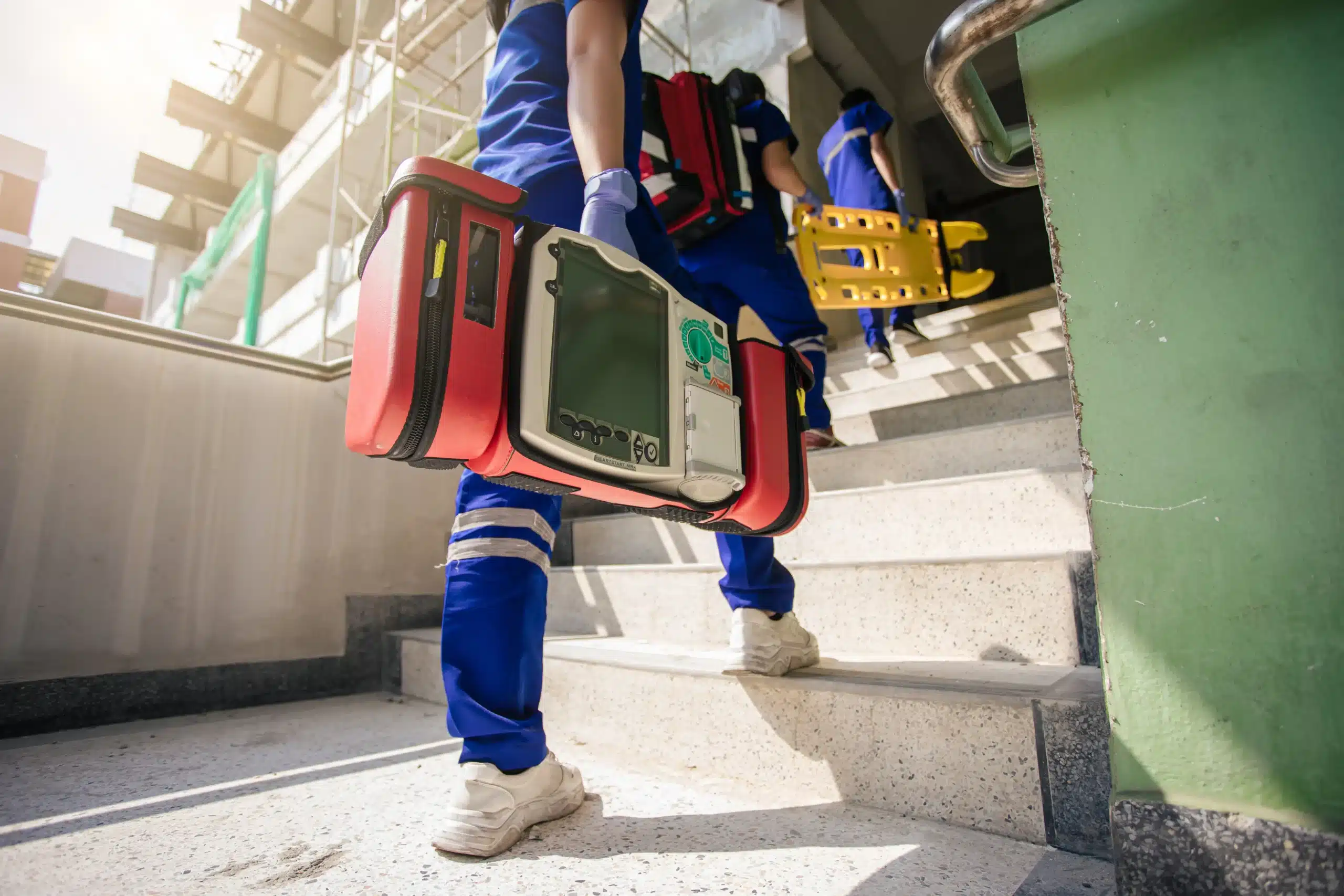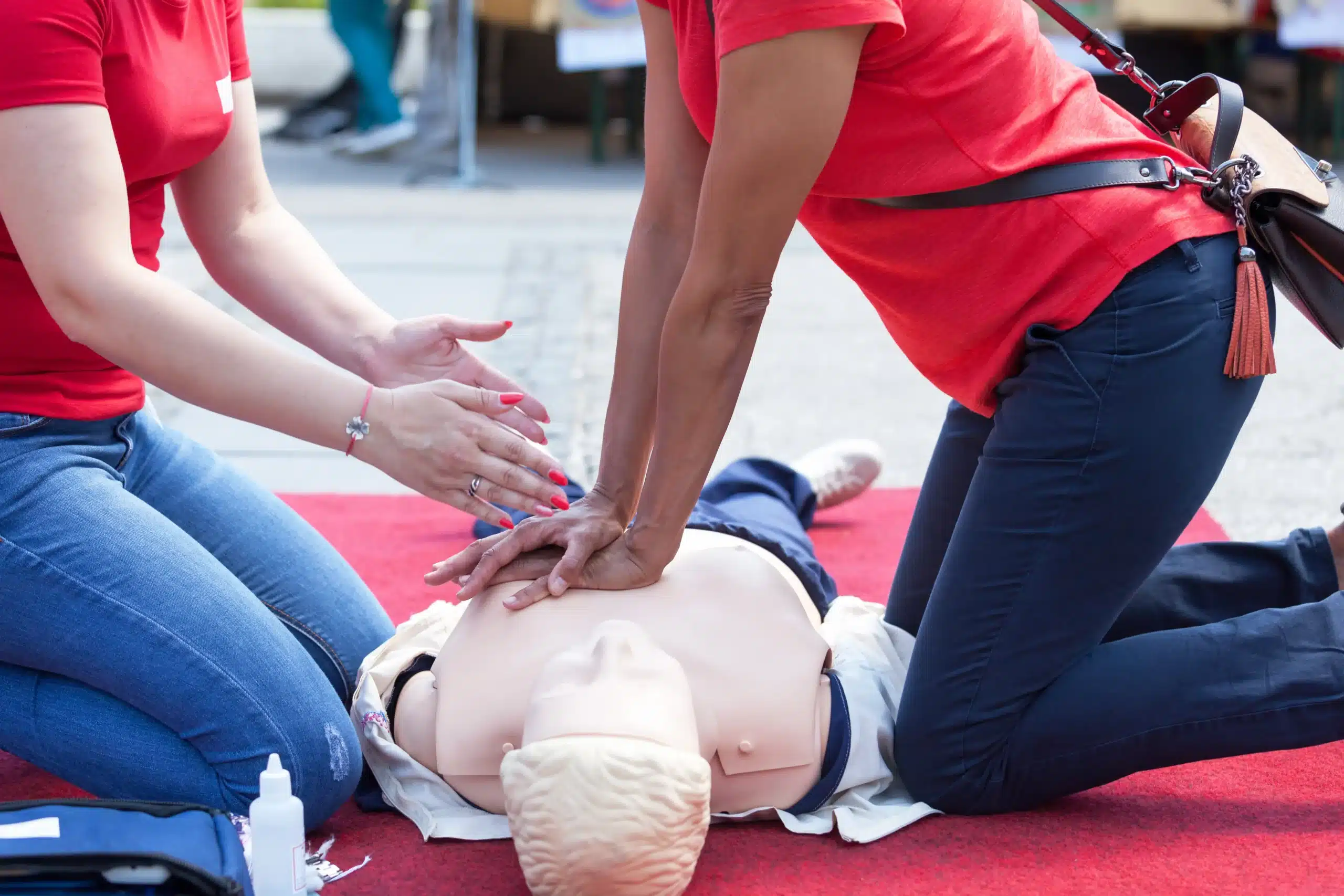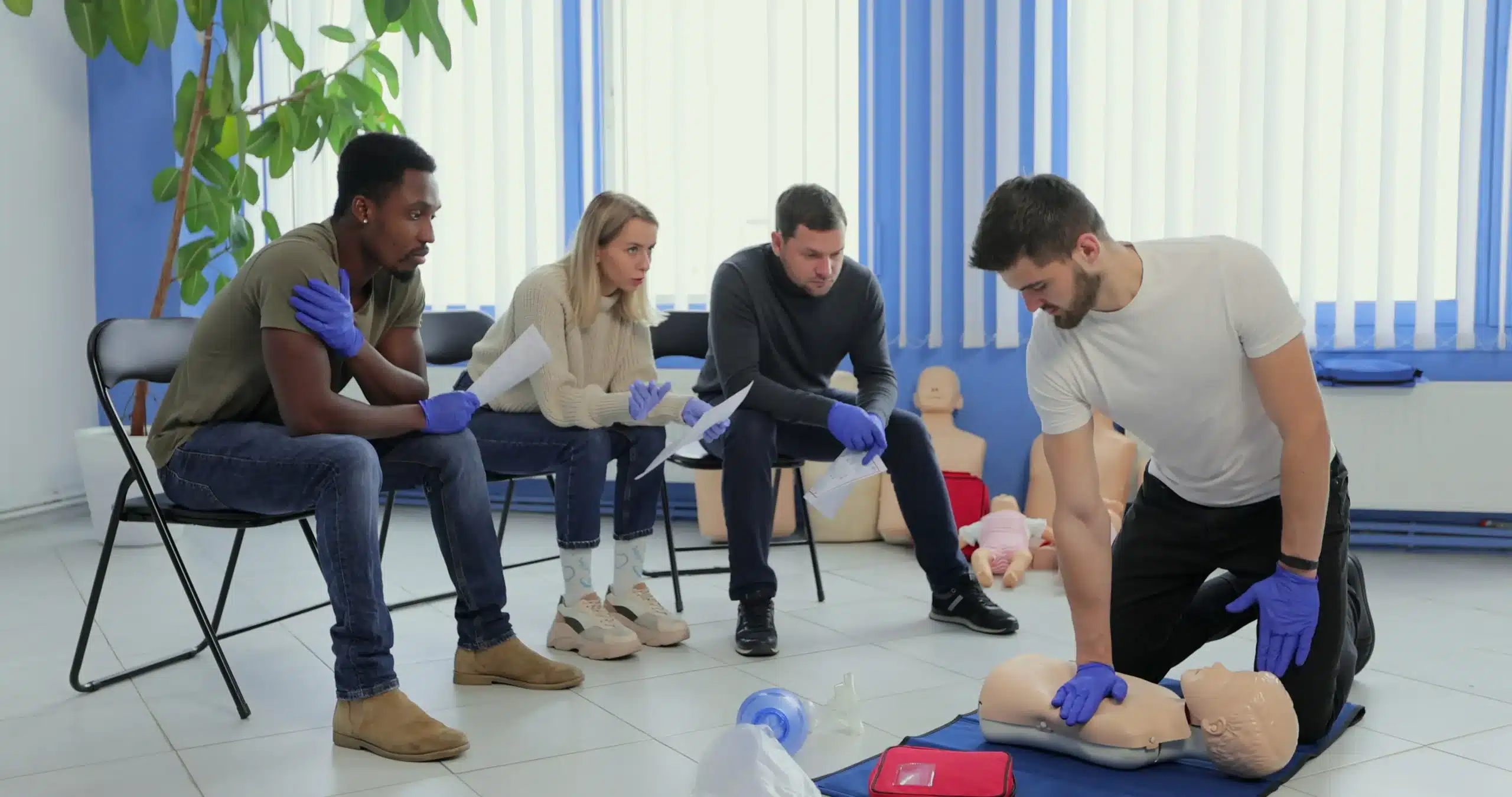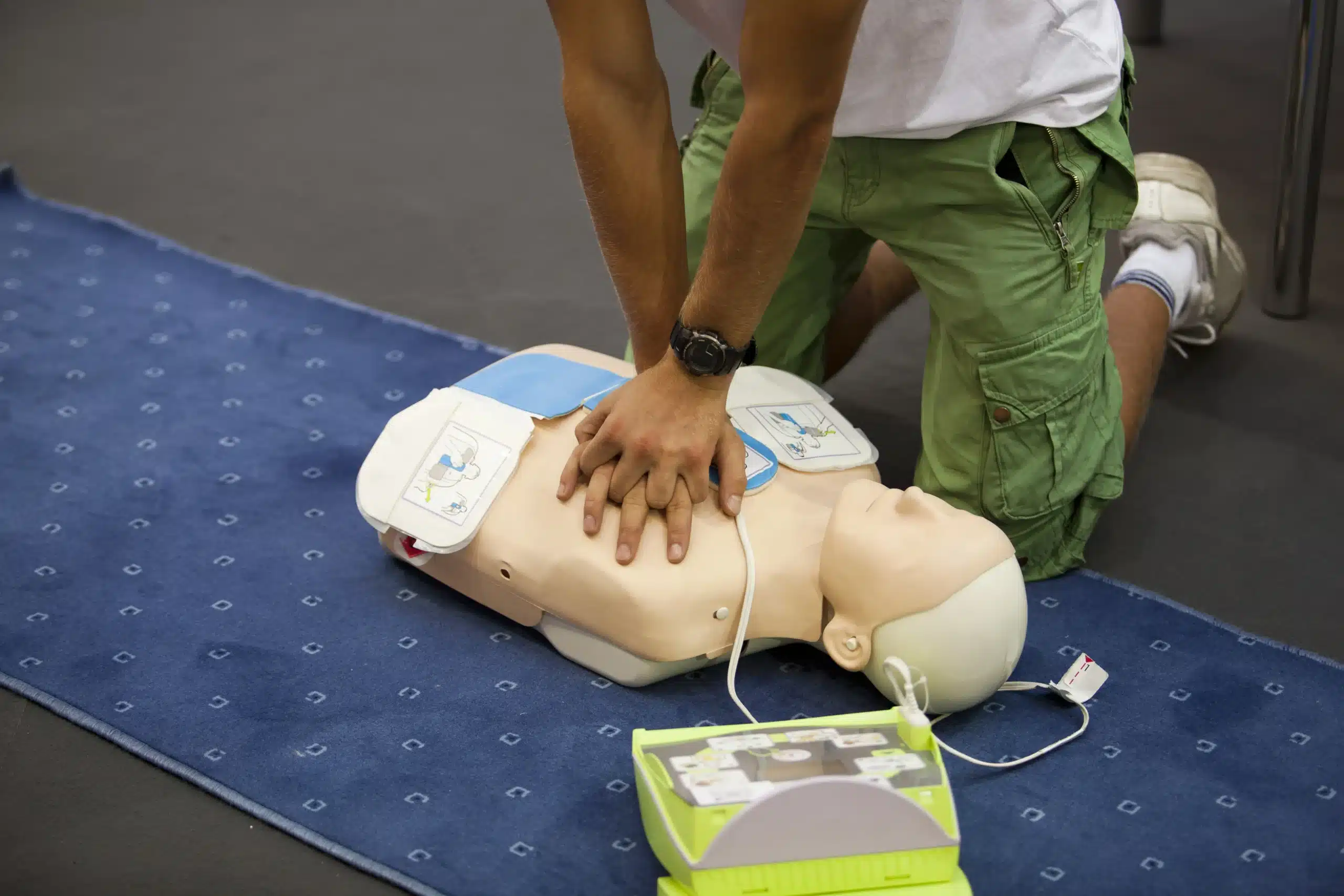Emergencies can happen anytime, anywhere. Being equipped to handle them is empowering, and that’s where CPR training comes in. If you’re searching for cpr courses in Port Chicago, you’re in the right place. This comprehensive guide walks you through the various CPR and first aid courses available, helping you choose the right one for your needs. We’ll cover everything from basic CPR to advanced certifications like ACLS, discuss different learning formats, and even offer tips for saving money. Plus, we’ll highlight some of the leading CPR training providers in Port Chicago, including Martinez CPR Classes, known for their commitment to affordable, high-quality training.
Key Takeaways
- Find the right CPR class for you: Whether you’re a healthcare professional, a parent, or just someone who wants to be prepared, there’s a CPR course out there that fits your needs. Consider factors like the type of certification, course format (online, in-person, or blended), and cost.
- Explore cost-saving options: CPR training is an investment, but there are ways to make it more affordable. Look for group discounts, promotions, and compare pricing between different providers.
- Stay current with your certification: CPR skills require regular refreshing. Make sure to renew your certification every two years to maintain your confidence and competence in responding to emergencies.
What is CPR? Port Chicago Courses
Cardiopulmonary Resuscitation (CPR) is a life-saving technique used in emergencies when someone’s breathing or heartbeat stops. It involves chest compressions, and sometimes rescue breaths, to keep blood and oxygen flowing to the brain and other vital organs. Learning and practicing CPR can empower you to make a real difference in a critical situation.
Finding the right CPR course in Port Chicago is easy thanks to several excellent training centers. Many, like Martinez CPR Classes, offer American Heart Association (AHA) certified courses, ensuring you receive high-quality instruction and recognized credentials. These courses often include hands-on practice, which is essential for building confidence and competence. Healthcare professionals looking to advance their skills can explore ACLS (Advanced Cardiovascular Life Support) training, which covers more complex resuscitation techniques and emergency response strategies. Whether you’re a healthcare provider, a concerned parent, or simply want to be prepared, Port Chicago has CPR training options to suit your needs.
CPR Course Types
Knowing which CPR course is right for you can feel overwhelming. This section breaks down the different types of CPR and first aid courses available in Port Chicago, so you can choose the best fit.
Adult CPR/AED
Adult CPR/AED courses teach essential skills for responding to cardiac arrest and breathing emergencies in adults. You’ll learn chest compressions, rescue breaths, and how to use an automated external defibrillator (AED). Many organizations, like the YMCA of the North, offer blended learning, combining online coursework with in-person skills practice. This flexible approach is great for busy schedules. Adult CPR/AED training suits anyone from concerned citizens to those needing certification for work.
Pediatric CPR
Pediatric CPR courses give you the skills to respond to emergencies involving infants and children. Similar to adult CPR, these courses address the physiological differences between adults and children. You’ll learn modified CPR techniques, how to relieve choking, and respond to other pediatric emergencies. The American Red Cross offers pediatric CPR training, preparing you to act quickly in a crisis. This course is ideal for parents, caregivers, teachers, and anyone regularly interacting with children.
BLS
BLS (Basic Life Support) certification is a healthcare professional-level course building on CPR foundations. It covers advanced techniques like high-quality CPR for adults, children, and infants, along with AED use and team dynamics during resuscitation. CPR Certification Chicago provides BLS training that meets American Heart Association standards. BLS certification is essential for healthcare providers, including doctors, nurses, paramedics, and other medical personnel.
ACLS
ACLS (Advanced Cardiovascular Life Support) is an advanced course for healthcare professionals managing cardiopulmonary arrest and other cardiovascular emergencies. It covers complex algorithms for treating life-threatening conditions, including stroke, myocardial infarction, and respiratory failure. Martinez CPR Classes offers ACLS training and renewals, keeping healthcare providers current with treatment protocols.
First Aid
First Aid courses teach you how to respond to various medical emergencies, from minor cuts and burns to more serious injuries like fractures and allergic reactions. You’ll learn to control bleeding, bandage wounds, manage shock, and administer basic first aid until professional help arrives. Organizations like Illinois Safety offer first aid training taught by experienced professionals, often including firefighters and paramedics. First aid training is valuable for anyone and complements CPR training.
Course Formats & Duration
Finding the right CPR course often comes down to format and how much time you have. Let’s break down the most common options: in-person, online, and blended learning.
In-Person Training
In-person CPR training remains a popular choice, especially for healthcare providers. You’ll learn alongside others and get immediate feedback from a certified instructor. This hands-on approach allows you to practice skills and ask questions as they arise. Many training centers in Port Chicago offer a variety of in-person courses, including ACLS renewal courses.
Online Courses
If your schedule is packed, an online course might be a good fit. Online CPR training offers flexibility, allowing you to learn at your own pace and revisit materials as needed. These courses typically cover the theoretical components online, sometimes requiring an in-person skills session to complete your certification.
Blended Learning
Blended learning combines the best of both worlds. You’ll work through online modules and then attend an in-person skills practice session. This format gives you the convenience of online learning with the benefit of direct instructor interaction. Blended learning is a great option for those who want a more thorough understanding of the material but can’t commit to a fully in-person course. Many ACLS renewal courses now use this format, making it easier for professionals to stay current with their certifications.
Costs & Certification
CPR certification costs vary depending on several factors, including the level of training, course format (online or in-person), and your location. Understanding these factors will help you budget appropriately and choose the right course for your needs.
Course Pricing
Basic CPR and First Aid training typically range from $50 to $150. More advanced certifications, such as ACLS (Advanced Cardiovascular Life Support) or PALS (Pediatric Advanced Life Support), generally cost more. Prices can also fluctuate based on location. For a breakdown of what impacts CPR class costs, check out this resource on CPR class costs.
Additional Fees
Beyond the base course fee, be aware of potential extra costs. Some providers charge separately for certification cards, course materials, or continuing education credits. Always check with the training center to understand the full cost before you register for a class. Martinez CPR Classes offers transparent pricing to help you avoid any surprises.
Certification Validity
While CPR certification isn’t legally mandated everywhere, it’s highly recommended by health organizations and often required for specific jobs, like healthcare providers and childcare professionals. Most CPR certifications are valid for two years. Staying current with your certification ensures you have the most up-to-date knowledge and skills to respond effectively in an emergency.
Renewing Your Certification
When your certification nears its expiration date, you’ll need to take a renewal course. Renewal courses are typically shorter and less expensive than initial certification courses. Similar to initial certification, renewal costs can vary based on the course type and provider. Plan for renewal to maintain your credentials and your ability to provide assistance when needed. Martinez CPR Classes offers a variety of renewal courses to help you stay current.
Save on CPR Training
CPR training is an investment in yourself and your community, but finding ways to save makes it even more accessible. Whether you’re coordinating training for a workplace, a group of friends, or just looking for the best deal, exploring available discounts and promotions is always smart.
Group Discounts
Training a whole team? Many CPR providers offer discounts for group CPR training. Check with your preferred training center, like Martinez CPR Classes, about their group discounts, especially if you need something like ACLS renewal for a whole department. Bundling courses can often lead to significant savings. This can be a great option for businesses, community organizations, or even a group of friends learning together.
Current Promotions
CPR course costs vary depending on the type of training and the provider. Basic CPR certification can range from $50 to $150, while more advanced certifications, including first aid, can sometimes cost $200 or more. It’s always a good idea to check with various providers for any current promotions. Many training centers offer seasonal discounts or special rates, so a little research can go a long way. You can also check if your employer or professional organization offers subsidies or reimbursements for CPR training. Don’t hesitate to ask potential providers about their low price guarantee or any special offers. Sometimes, combining CPR training with other life support courses can also result in a lower overall cost.
Top Port Chicago CPR Providers
Finding the right CPR training provider is an important step. Here are a few options to explore in and around Port Chicago:
Martinez CPR Classes
Martinez CPR Classes offers a comprehensive range of American Heart Association (AHA) courses, including BLS, ACLS, PALS, and First Aid. They are committed to low prices and offer convenient daily classes, serving Martinez, Port Chicago, and Benicia. Their ACLS renewal courses accommodate busy schedules, and they also offer discounts for group CPR training. For healthcare professionals seeking specialized training, they provide RQI courses as well.
American Red Cross Bay Area
The American Red Cross Bay Area is a well-known provider offering various CPR and first aid certification courses. Their training meets common workplace requirements. Visit their website for specific courses and schedules in the Port Chicago area.
Other Local Options
While not specifically located in Port Chicago, exploring options at nearby YMCAs or community centers may uncover additional CPR training resources. Contacting these organizations directly can provide information on available courses and schedules. It’s always a good idea to confirm that any training you choose aligns with your specific certification needs.
Find Your Perfect CPR Course
Choosing the right CPR course can feel overwhelming, but it doesn’t have to be. By breaking down the process into a few key steps, you can find the perfect fit for your needs and budget.
Define Your Needs
Before you start browsing courses, take a moment to think about why you need CPR certification. Are you a healthcare professional requiring BLS certification? Are you a parent or caregiver looking for basic CPR and first aid knowledge? Or maybe you need CPR certification for your job? Clearly defining your needs will help you narrow your search and focus on the most relevant courses. Knowing the cost of CPR training is a big factor in deciding to enroll.
Compare Courses
Once you know what type of certification you need, compare courses. Look at factors like course content, format (online, in-person, or blended), and cost. Basic CPR classes typically range from $50 to $150, while more advanced certifications like ACLS can cost more. Check for any additional fees, such as for study materials or certification cards. Martinez CPR Classes offers a low price guarantee, so you can be confident you’re getting a good value. It’s also smart to compare what different courses include. Some might cover comprehensive first aid training along with CPR instruction.
Consider Logistics
Finally, think about the practical aspects of taking a CPR course. Where is the training center located? When are classes offered? If you have a busy schedule, you might prefer the flexibility of an online or blended learning format. Martinez CPR Classes offers a variety of schedules and formats, including daily certification courses in over 60 cities, making it easier to find a class that fits your life. They also offer discounts for group classes, which can be a great option for workplaces or community groups. If you’re a healthcare provider, consider their convenient ACLS renewal courses designed for busy professionals. They offer both online and hybrid options to fit your learning style and schedule.
Related Articles
- CPR Training in Martinez: Your Complete Guide – Martinez CPR Classes
- Online BLS Classes in Port Chicago: Your Guide – Martinez CPR Classes
- CPR Courses in Benicia: Find the Right Class for You – Martinez CPR Classes
- Why CPR Saves Lives and How You Can Learn It
- ACLS Courses in Port Chicago: Your Complete Guide – Martinez CPR Classes
Frequently Asked Questions
How do I choose the right CPR class for me in Port Chicago? Think about why you need CPR training. Are you a healthcare provider, a parent, or required to have it for work? This helps narrow down the options. Consider your schedule, too. Online, in-person, and blended learning formats offer flexibility for different lifestyles. Finally, compare costs and what’s included in different courses.
What’s the difference between CPR, BLS, and ACLS? CPR teaches basic life-saving skills for emergencies. BLS builds upon CPR, adding more advanced techniques and is geared towards healthcare professionals. ACLS is the most advanced level, focusing on complex life support protocols for healthcare providers responding to severe cardiovascular emergencies.
How much does CPR certification cost, and how long is it good for? CPR certification costs vary, usually between $50 and $150 for basic courses, with more advanced certifications like ACLS costing more. Most certifications are valid for two years. Look for providers offering discounts, like Martinez CPR Classes, which has a low-price guarantee and group discounts.
What if I have a busy schedule and can’t attend a traditional CPR class? Many providers offer online and blended learning options. Online courses let you learn at your own pace, while blended learning combines online modules with in-person skills practice. This flexibility makes CPR training accessible even with a packed schedule.
Where can I find reputable CPR training providers in Port Chicago? Martinez CPR Classes is a great local option offering various AHA-certified courses. The American Red Cross Bay Area is another reputable provider. You can also check with local YMCAs or community centers for additional training resources. Always confirm the training aligns with your specific certification requirements.
